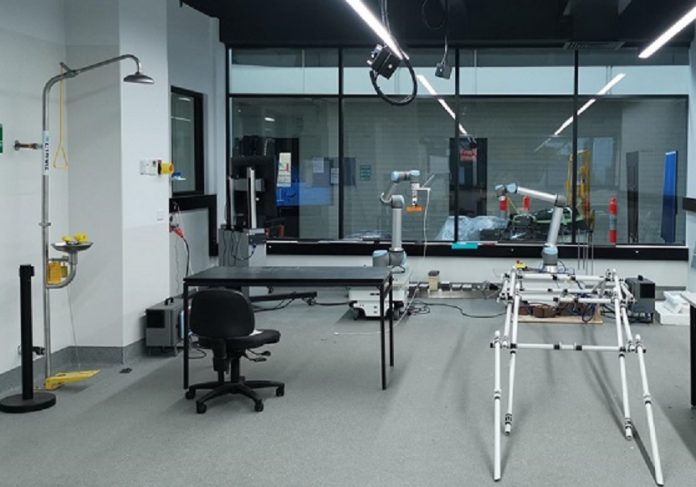
Media Release
A ground-breaking research initiative to improve the quality and productivity of the construction industry using robotic technology has received more than half a million dollars from the Australian Research Council.
Professor Yu Bai from Monash University’s Department of Civil Engineering will lead an interdisciplinary team from seven Australian universities to develop a one-of-a-kind facility centred on structural assembly and construction automation.
It will feature a flexible and adaptive design, and space for a team of collaborative robotics, in an interactive environment to achieve automated prefabrication, assembly and building.
The outcomes are expected to transform the current labour-intensive construction industry to one that uses highly automated and accurate prefabrication processes, with significant benefits to the economy and worker safety.
This initiative was made possible through a grant from the Australian Government’s Linkage, Infrastructure, Equipment and Facilities (LIEF) program.
Professor Bai said many industries, such as manufacturing and transport, had adopted automated practices to speed up, optimise, and economise production. However, the construction industry was lagging and not yet well taking advantage of such technological advancements.
“Robotic technology has made significant progress in a number of industry domains in the last several years and construction can benefit from this advancement. The use of robotic technology can be a game-changing step as seen in other industries such as aerospace and automobile engineering,” Professor Bai said.
“It means the transformation of on-site prototype construction to made-to-measure structural production and the elevation of prefabrication and off-site manufacturing into automated processes.
“Furthermore, automating traditional construction approaches can remove workers’ exposure to unsafe tasks and hazardous work environments.”
This facility builds upon extensive research by Professor Bai and colleagues on modular construction and composites for construction. When combined with robotic technology, this can result in faster, more precise, lower cost and higher-quality production outcomes.
The facility will cover structural design for manufacturing and assembly, lightweight structural materials and connections, construction planning and safety, sensing and monitoring, building information modelling and digital asset management, optimisation of structures and assembly, automation and informatics, and robotic systems and human-robot interaction.
“We’re grateful to the Australia Government’s LIEF program for its support behind our vision to benefit the building industry so it is safer for workers, more environmentally sustainable and, above all, more affordable for consumers.”



















